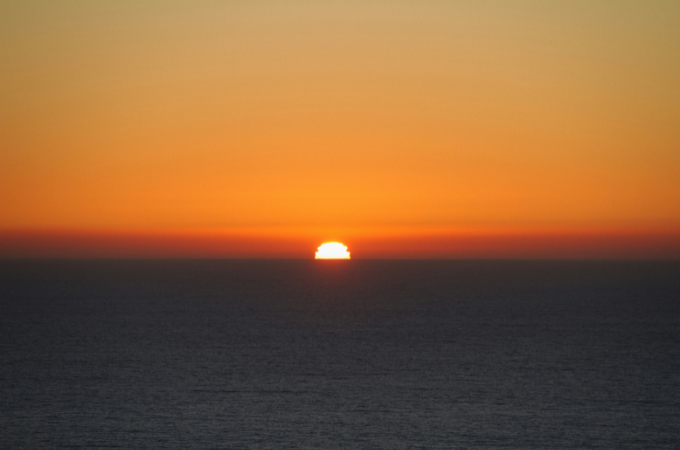
The first time I heard about ‘Biafra’ I was maybe 8? Young enough that I always believed what my parents had to say about anything. So, when my dad told me about this country that was just a step down from heaven, I took it as an absolute truth. I grew older and started thinking about Biafra more and more. I talked about it with my friends, I read books about it, and I watched every documentary I could find. I was basically an expert. I had a one-track mind about it – if such a perfect place exists then we must return to it. I didn’t understand the concept of war then.
I grew up religious so every metaphor was literal to me. We had communion service once every month and it reinforced the idea that blood was sweet and screaming was what you did when you were free. I skimmed over pages describing hunger or beheading or village raids. And every time I saw or heard descriptions of everyday pain – betrayal, loss of a loved one, or nostalgia for peaceful times – I understood even less. I was young and wanted to hold on to the idea that if you loved something then everything you lost to get it was expendable. I remember having a conversation with my friend where I insisted that I wanted Biafra to exist again. I remember how she shook her head and said, “you don’t understand war.” Even though I didn’t say it then, I wanted to respond, “you don’t understand love.”
For years (particularly my university years) I grew to understand love as being synonymous with effort. As such, I threw myself into being a utopia. I wanted the companionship that I saw all around me. So, I tried. I walked into a lot of interactions and pseudo-relationships as a perfect mirror. Every time I was confronted with questions like “who are you?” and “what do you want?” it seemed like the only thing I knew how to do was to ask the same questions back to them. “Who are you and what do you want?” I believed wholeheartedly that if you could see yourself in someone then you could love them. The problem, of course, is that that isn’t true. And even if it were, not everyone loves themselves.
The ultimate goal was that I had to belong to something. Whether that was a person or a country wasn’t particularly my business. All I knew was that if there was perfection somewhere then I was going to find it and live within it. Because like I said, I hadn’t yet given up love as a pinnacle. In England, in Biafra, in every new person, I was convinced I could find love, I just had to try. But in all my metamorphing, shedding, and adding on to myself, it didn’t occur to me that there were parts of me that were worth leaving untarnished. Like a person who stumbled through a conversation in Igbo out of sheer determination, like a person who delved into a new reality with two suitcases and an open mind, like the person who went to church and took communion. Who was young and took everything literally. Who promised herself, the first time she heard the story, that she would never be Moses. She believed in the promised land and she would do anything to get there. And it was always for love. She would do anything and everything for love. I didn’t think I had lost sight of that and I didn’t think I ever would, but I did. Because as it turns out, doing things in the hope that you’ll be loved for them isn’t the same thing as doing them for love.
With a huge capacity for love comes a huge capacity for anger, resentment, and hate. Snapping out of a need for belonging felt like finding out that war isn’t ever valiant and justified. You begin to see things as they are, and the words that you once skimmed over are technicolour in your brain. Looking back, you realise that some things, no matter how hard you try to salvage and memorialise them, are a waste. It turned my world upside down to figure out that death, suffering, and loss aren’t the sort of things that you can excavate, create, or manipulate love out of. There’s no true paradise in which pain is a prerequisite. In all the ways I abandoned, discarded, betrayed, and belittled myself in the hopes that I would be rewarded for it, here was no love waiting for me at the end of those experiences. I was bitter for months. But at some point, I moved into the bargaining stage in the grief process.
I told myself that I simply had to find my way back to an old Chiamaka. Not the Chiamaka that was a mirror and an echo, not the Chiamaka in her first year of uni, not even the Chiamaka that believed wholeheartedly in a country that doesn’t exist. A Chiamaka before that. I wanted to find myself before all the noise. Before I thought about war, or love, or belonging. But I found that I couldn’t access her. Which meant that I was back in the bad habit of feeling nostalgic for something that wasn’t real. With no utopia and no unencumbered memory of myself, I find that there is nothing to return to.
This realisation meant starting a new cycle of grief in which I spent months mourning a maybe. More people talk about Biafra now. I let them finish before I disagree. I disavow them of their hope and their musings and their imagination that there was a past heaven on earth. I tell them, with an authority that I think I’ve earned, about how it was flawed and was always going to be flawed. I’ve been accused of being realistic to the point of pessimism. I remember talking to my friend and saying in no uncertain terms, “every good thing about it is a misremembering.” But that’s not true. Valorising the sacrifice that went into it isn’t something I can stand behind – I know better now. But dismissing the fact that Biafra was an idea born out of the pride and stubbornness that characterises Igbo people’s love is also unfair, if not wrong.
It’s true that if you catch me unguarded one day you might find me day-dreaming about a green, red, black, and yellow flag. If I’m extra vulnerable I might even be thinking about every person that made me feel like I was carrying the bisection of the sun in my chest. If you asked me then, “would you go back?” I can’t always promise that my answer will be no. But I try to supersede it with a louder question, a better question – “Where do we go from here?”
Photo by Kyle Glenn on Unsplash


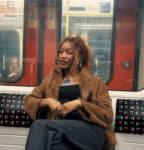


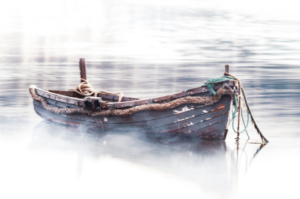
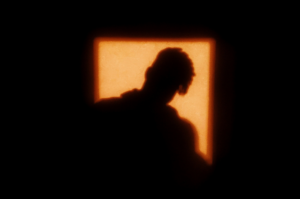
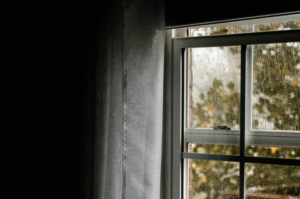
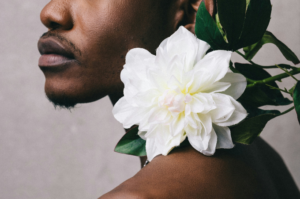

Tolu May 06, 2024 11:53
I’m always pulled to into nostalgia and reflection through her writing - thanks another beautiful piece!